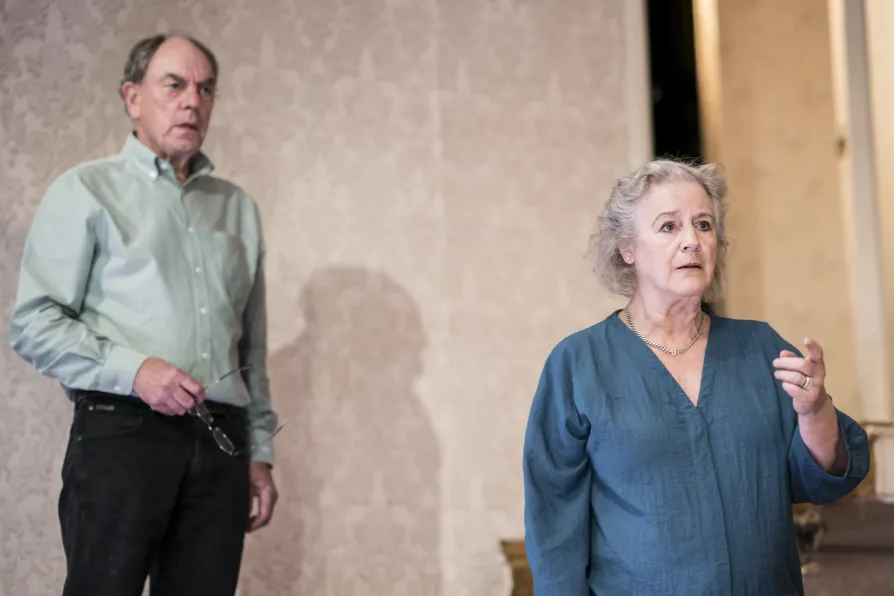MATTHEW HAWKINS contrasts the sinister enchantments of an AI infused interactive exhibition with the intimacies disclosed by two real artists
The case for sparing the rod
The Cane persuasively reflects on the malignant consequences of corporal punishment, says MARY CONWAY

 Spectacular: Alun Armstrong and Maggie Steed
[Johan Persson]
Spectacular: Alun Armstrong and Maggie Steed
[Johan Persson]
The Cane
Royal Court Theatre, London
INSPIRED in its subject matter and its stylised symbolism, Mark Ravenhill’s new play is clever and insightful, exhibiting a highly refreshing artistic freedom in a world dominated by the cliches of mainstream media.
Similar stories

MARY CONWAY recommends a play that some will find more discursive than eventful but one in which the characters glow

Our tipster gives this weekend's lowdown












